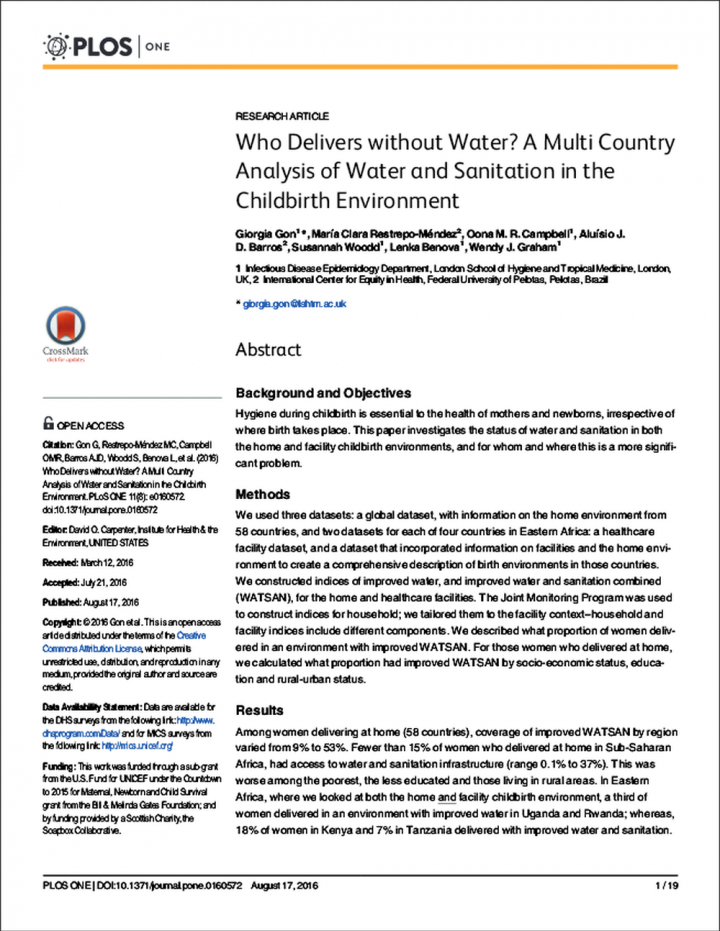Who Delivers without Water - A Multi Country Analysis of Water and Sanitation in the Childbirth Environment Gon, G., Restrepo-Méndez, M.C., Campbell, O.M.R., Barros, A.J.D., Woodd, S., Benova, L., Graham, W.J. (2016)
Background and Objectives
Hygiene during childbirth is essential to the health of mothers and newborns, irrespective of where birth takes place. This paper investigates the status of water and sanitation in both the home and facility childbirth environments, and for whom and where this is a more significant problem.
Methods
We used three datasets: a global dataset, with information on the home environment from 58 countries, and two datasets for each of four countries in Eastern Africa: a healthcare facility dataset, and a dataset that incorporated information on facilities and the home environment to create a comprehensive description of birth environments in those countries. We constructed indices of improved water, and improved water and sanitation combined (WATSAN), for the home and healthcare facilities. The Joint Monitoring Program was used to construct indices for household; we tailored them to the facility context household and facility indices include different components. We described what proportion of women delivered in an environment with improved WATSAN. For those women who delivered at home, we calculated what proportion had improved WATSAN by socio-economic status, education and rural-urban status.
Results
Among women delivering at home (58 countries), coverage of improved WATSAN by region varied from 9% to 53%. Fewer than 15% of women who delivered at home in Sub-Saharan Africa, had access to water and sanitation infrastructure (range 0.1% to 37%). This was worse among the poorest, the less educated and those living in rural areas. In Eastern Africa, where we looked at both the home and facility childbirth environment, a third of women delivered in an environment with improved water in Uganda and Rwanda; whereas, 18% of women in Kenya and 7% in Tanzania delivered with improved water and sanitation. Across the four countries, less than half of the facility deliveries had improved water, or improved water and sanitation in the childbirth environment.
Conclusions
Access to water and sanitation during childbirth is poor across low and middle-income countries. Even when women travel to health facilities for childbirth, they are not guaranteed access to basic WATSAN infrastructure. These indicators should be measured routinely in order to inform improvements.
Bibliographic information
Gon, G., Restrepo-Méndez, M.C., Campbell, O.M.R., Barros, A.J.D., Woodd, S., Benova, L., Graham, W.J. (2016). Who Delivers without Water - A Multi Country Analysis of Water and Sanitation in the Childbirth Environment Institute for Health & the Environment
Filter / Tags
EnglishSexual and Reproductive Health and Rights (SRHR)

